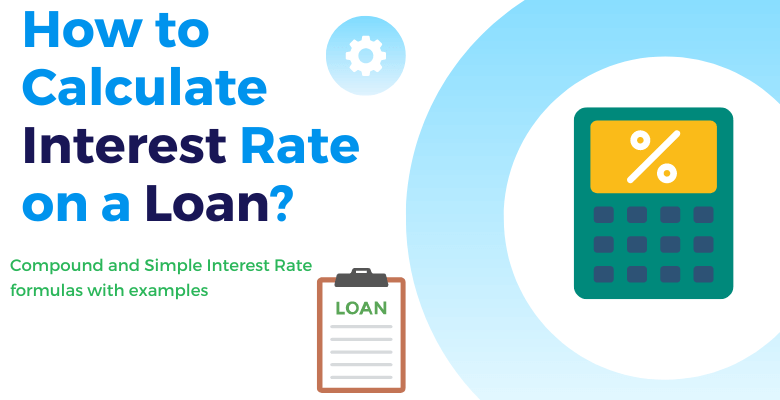President Donald Trump’s “big beautiful” bill became law when he signed the policy on July 4. But Americans likely won’t feel the impact of all of the bill’s provisions immediately.
Some of the provisions are already in force, which taxpayers will notice when they file their 2025 taxes in 2026. Other provisions, including changes to Medicaid, won’t take effect until the end of next year.
Here’s what to expect going forward.
New or expanded tax credits and deductions
Many taxpayers will be able to claim new or updated credits and deductions when they file their 2025 tax return.
State and local tax deduction changes
For tax year 2025, filers earning up to $500,000 a year can claim up to $40,000 in state and local tax deductions on their federal tax returns, up from the previous $10,000 limit put in place by the Tax Cuts and Jobs Act.
Both the SALT limit and the income threshold will increase by 1% annually through 2029, and the maximum will revert to $10,000 in 2030.
Expanded child tax credit
The maximum child tax credit will rise to $2,200 for tax year 2025 with the refundable portion of the credit remaining at $1,700. Starting in 2026, both figures will be indexed for inflation.
Senior “bonus” deduction
Taxpayers ages 65 and older can claim a “bonus” deduction worth up to $6,000 for tax years 2025 through 2028. Single filers earning up to $75,000 a year and married filers earning up to $150,000 can claim the full deduction.
Auto loan interest deduction
Individuals earning up to $100,000 a year or married couples earning up to $200,000 can deduct up to $10,000 of annual interest on new auto loans for tax years 2025 through 2028. The loan must be for cars assembled in the U.S.
No tax on tips
Workers who earn tips will be able to deduct up to $25,000 of their qualified tip income for tax years 2025 through 2028. The deduction phases out for individual filers earning more than $150,000 a year and joint filers earning more than $300,000.
Overtime pay tax deduction
Taxpayers can get a maximum $12,500 above-the-line deduction — meaning those who don’t itemize their deductions can still claim it — on overtime earnings for tax years 2025 through 2028. The deduction phases out for individual filers earning more than $150,000 a year and joint filers earning more than $300,000.
Tax credit for private school scholarship donations
Beginning in tax year 2027, taxpayers can claim a credit worth up to $1,700 for qualified donations to nonprofit organizations that support scholarships for K-12 private school education.
Elimination of tax credits
While the legislation adds a number of new credits, it will also sunset a couple of tax credits enacted by former President Joe Biden.
Clean vehicle credit
After Sept. 30, 2025, taxpayers will no longer be able to claim a tax credit worth up to $7,500 for purchasing a new electric vehicle, or up to $4,000 for a used EV.
Since 2024, car buyers have been able to claim this credit at the point of sale, rather than later when they file their taxes. The credit was introduced as part of the Inflation Reduction Act of 2022 and was slated to be in effect through 2032.
Energy efficient home improvement credit
Since 2023, homeowners have been able to claim a tax credit worth up to $3,200 for making energy efficient improvements to their homes, such as installing solar panels. Though initially set to expire after 2032, taxpayers will no longer be able to claim the credit after Dec. 31, 2025.
Changes to federal benefits
Along with changes to federal tax policies, Trump’s legislation includes a few provisions that will change who can claim benefits like Medicaid and food stamps.
New Medicaid work requirements
Medicaid, which provides health insurance to those with low incomes, will introduce new work requirement rules effective Dec. 31, 2026. Beneficiaries ages 19 to 64 who apply for Medicaid or coverage through an Affordable Care Act expansion group will have to work at least 80 hours a month to be eligible for benefits.
Qualifying circumstances, such as certain medical conditions or dependent children ages 14 and under, may exempt beneficiaries from the work requirement. States will also need to recertify beneficiaries’ eligibility every six months, rather than the current annual review policy.
Supplemental Nutrition Assistance Program eligibility changes
Americans who receive SNAP benefits, previously known as food stamps, will have expanded work requirements. Beneficiaries ages 18 to 54 without dependents currently need to work at least 80 hours a month to receive SNAP for more than three months in three years, unless certain factors apply, such as physical or mental limitations.
The new work requirements will apply to beneficiaries ages 18 to 65 and those with children ages 14 and older under the new legislation. Recipients will also need to be a citizen or permanent resident of the U.S. to receive benefits.
It’s not clear exactly when the new requirements will go into effect, but the U.S. Department of Agriculture will notify states when and how to implement the new regulations, according to a department spokesperson.
“Trump accounts” for child savings
The legislation introduces a new program known as “Trump accounts” that lets parents open a tax-advantaged investment account for children born between Jan. 1, 2025 through 2028. The government will deposit an initial $1,000 into the accounts and parents can contribute to $5,000 a year in post-tax dollars. The money grows tax-free and beneficiaries can access the funds once they turn 18.
There will be a 10% penalty and income tax on withdrawals taken before age 59½ unless the funds are used for higher education, disability or natural disaster-related costs. Beneficiaries can also withdraw up to $10,000 for a new home purchase and $5,000 for a baby of their own. Withdrawals for qualified expenses are taxed at the long-term capital gains rate.
Federal student loan changes
The legislation also introduces a number of changes to the federal student loan system, including updates for new and future borrowers and those currently in repayment.
Streamlined repayment options
Borrowers who take out loans on or after July 1, 2026 will only have two repayment plan options: a new standard repayment plan and a new income-driven plan known as the Repayment Assistance Plan.
Current borrowers enrolled in the Saving on a Valuable Education, income-contingent or Pay as You Earn repayment plans will no longer have access to those plans. Those borrowers will also be limited to the two new repayment plan options after July 1, 2026. At that point, they will need to select the repayment plan of their choice or be automatically enrolled in RAP after July 1, 2028.
Borrowing limits
Beginning July 1, 2026, graduate students and parents will have new or lower borrowing limits for federal student loans. The annual limit for graduate student loans will drop to $20,500, or $50,000 for professional programs like medical or law school. Grad students will have a lifetime limit of $100,000 on federal loans, or $200,000 for professional programs.
Parents will be able to borrow up to $20,000 per year per dependent through Parent PLUS loans, with a lifetime limit of $65,000 per student, beginning in July 2026.
Students currently in school will be able to complete their studies with the current, larger loan limits as well as access to graduate PLUS loans, which will not be available to new borrowers after July 1, 2026.
Pell Grants
Students enrolled in qualifying short-term vocational training programs will be eligible to receive Workforce Pell Grants beginning July 1, 2026.
Eligible programs have between 150 and 600 hours of instruction or equivalent credit hours and last between eight and 15 weeks, among other requirements.
Are you ready to buy a house? Take Smarter by CNBC Make It’s new online course How to Buy Your First Home. Expert instructors will help you weigh the cost of renting vs. buying, financially prepare, and confidently navigate every step of the process—from mortgage basics to closing the deal. Sign up today and use coupon code EARLYBIRD for an introductory discount of 30% off $97 (+taxes and fees) through July 15, 2025.










